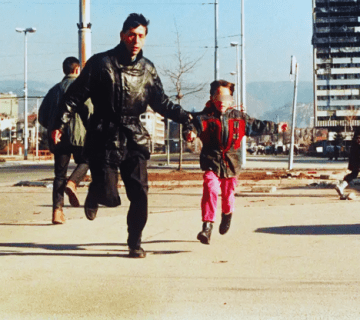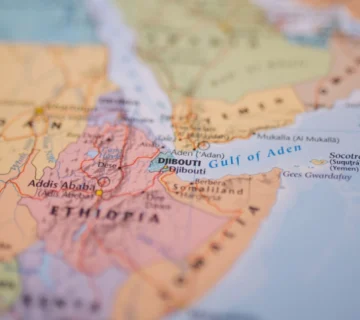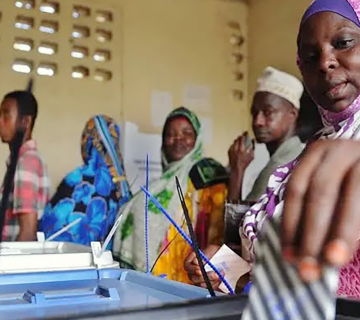Felix Tshisekedi was elected President of the Democratic Republic of Congo (DRC) in January 2019, taking over from Joseph Kabila who held the position for 18 years. The elections were tumultuous, marked by irregularities and intercommunal tension according to observers. In his political manifesto, Tshisekedi emphasizes the need for an effective national army capable of defending DRC’s borders, exercising authority on its territory, and eradicate militias. Measures “will involve, among other things, raising recruitment standards, regular pay, better training, improving food and housing conditions, and qualifications for promotions.” Missing from Tshisekedi’s manifesto, however, is the realization of the DRC’s current security conundrum; the continued existence of political-military entrepreneurs and how to address them; and efforts to tackle cyclical mobilization through Disarmament, Demobilization and Reintegration (DDR) programs.
Armed Militia
Around 120 armed groups currently operate in eastern DRC, mostly in North Kivu and South Kivu, many of whom portray themselves as protectors of their ethnic community in the absence of a State able or willing to provide security. Policymakers and commentators on DRC, on the other hand, often portray armed groups in eastern DRC as criminal rather than political in nature. Some argue that armed groups have no political vision and are merely motivated by material self-interest. Judith Verweijen, an expert on DRC, found that many armed group members are in fact inspired by the need for self-defence in response to continuing foreign threats and the weakness of government security forces. Despite this however, Verweijen argues that political-military entrepreneurs continue to be of huge significance to the continuation of violent mobilization in the two regions. Papy Muzuri, researcher and collaborator with the London School of Economics’ Centre of Public Authority and International Development, additionally suggests that the persistence of these armed groups is also tied up with the failures of the region’s DDR programs.
Jason K. Stearns, an acclaimed expert on the DRC and author of the book Dancing in the Glory of Monsters: The Collapse of the Congo and the Great War of Africa, argues that the Congolese State is decrepit and partial to private interests. It has neither the rule of law to guarantee property rights nor the force of law to suppress armed rivals. This reinforces the belief that the only way of protecting property and individual freedoms is through armed force, which creates a situation in which political elites have a “stake in armed groups, which they believe maintain their interests— either directly, by providing protection to businesses and their personal security, or indirectly, by bolstering their influence and giving them political leverage.”
Rescuing the Situation
To improve the security situation in eastern DRC, Tshisekedi needs not only to reform and professionalize the national army (FARDC), but also to address these political-military entrepreneurs who are using armed groups to exert influence. The Brookings Institute argues that the United States and Europe should offer Tshisekedi help in this regard. Tshisekedi needs to “reform his military, particularly in rooting out corrupt top brass and holding them accountable for abuses, and they will help build it up into a force that can ultimately exert sovereign control over the preponderance of the nation’s territory.”
Additionally, Tshisekedi needs to revise and improve existing and upcoming DDR programs. In 2015, the Congolese government initiated its third major national disarmament, demobilization and reintegration (DDR) program (DDR III), to reintegrate Congolese ex-combatants into civilian life. Christoph Vogel and Josaphat Musamba, in a briefing paper for The Rift Valley Institute, note that the political roots of armed mobilization remain largely unaddressed. They argue that “for DDR III to have lasting success, it will need to be more closely coordinated with the wider political and security context, … and the reasons for the persistence of armed groups.” Earlier DDR programs in the DRC have failed because of local security issues (if one armed group mobilizes and arms itself, all groups will), resistance by political elites who often use militias to bargain for political posts, incentive structures for commanders (promises of high-ranking positions in the army), and the ignorance of DDR programs with regards to social identity and status (being a farmer is not ‘cool’, while being a rebel is). Vogel and Musamba state that “these four factors create major obstacles for DDR III, which is itself far from being free of other weaknesses and challenges.”
Sustainable Peace in DRC
In his quest for peace and prosperity for the DRC, Tshisekedi has a long way to go. He can cover a lot of ground with regards to security by limiting cyclical violent mobilization through addressing the existence of political-military entrepreneurs and through improving DDR programs. To this end, Tshisekedi is poised to release a five-year plan called One Nation, One Army in the coming months to improve DRC’s security and defence. In the plan, Tshisekedi should encapsulate these two efforts in collaboration with his measures to professionalize and better equip and pay the FARDC, creating a synergy of security reforms.
Jules Swinkels is a Visiting Research Fellow at the HORN Institute.



